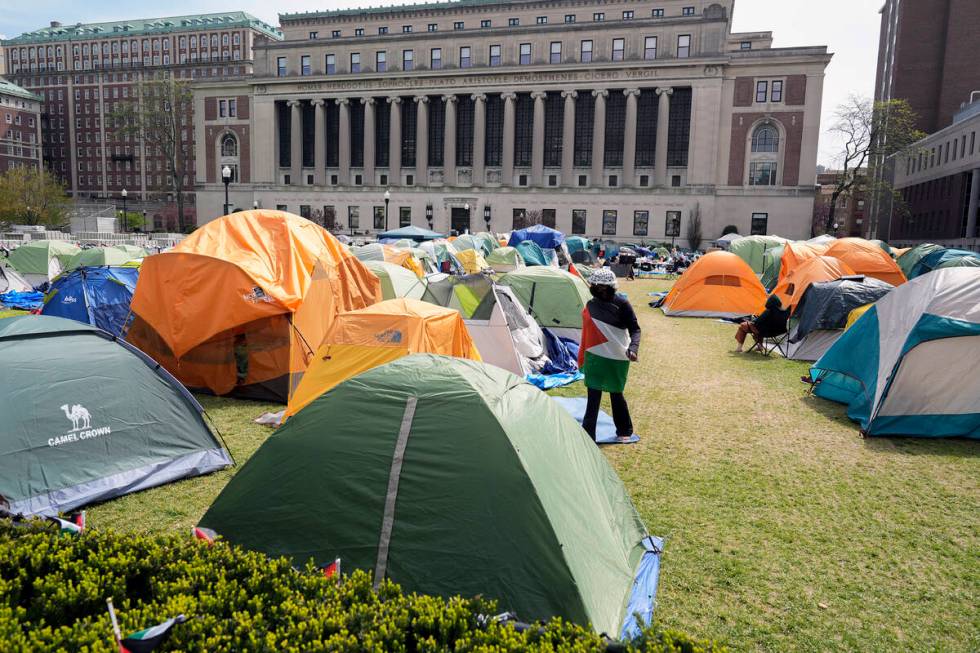College, Jewish student agree on settlement with safety measures

NEW YORK — Columbia University has agreed to take additional steps to make its students feel secure on campus under a settlement reached Tuesday with a Jewish student who had sought a court order requiring the Ivy League school provide safe access to the campus amid protests over the Israel-Hamas war.
The law firm representing the plaintiff in the lawsuit, filed as a class action complaint, called the settlement a “first-of-its-kind agreement to protect Jewish students from extreme on-campus Gaza war protestors.”
Under the agreement, Columbia must create a new point of contact — a Safe Passage Liaison — for students worried for their safety. The liaison will handle student safety concerns and coordinate any student requests for escorts through an existing escort program, which must remain available 24/7 through at least Dec. 31, according to the agreement.
The settlement also makes academic accommodations for students who couldn’t access campus to complete assignments or exams, among other provisions.
“We are pleased we’ve been able to come to a resolution and remain committed to our No. 1 priority: The safety of our campus so that all of our students can successfully pursue their education and meet their academic goals,” a university spokesperson said in a written statement.
The settlement noted the various steps Columbia has already taken to ensure student safety on campus, such as authorizing the New York Police Department to clear the university’s administrative building and arrest more than 100 people.
Protests at Columbia, including an encampment, inspired similar demonstrations at colleges and universities around the country, with students demanding their schools separate themselves from companies advancing Israel’s military efforts in Gaza and in some cases from Israel itself.
A legal group representing pro-Palestinian students has urged the U.S. Department of Education’s civil rights office to investigate Columbia’s compliance with the Civil Rights Act of 1964 for how they have been treated.